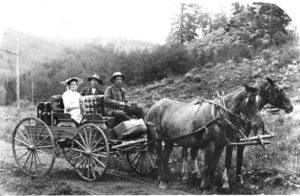By Peter Anderson
1. One winter afternoon in 1974, I knew how good a hockey goalie’s life could be: skates sufficiently dull to slide around in the crease (but sharp enough for stability and precision), pads snug and riding well on legs, good light and clear vision though the eyeholes of a fiberglass mask, glove hands moving with speed and accuracy, kicks to right and left bouncing out shots along the ice. On a breakaway, the player I dreaded most hit the post after a risky cross-body lunge on my part. Good mojo held up until the third period clock ran down to all its lovely zeros. We came out on top. Just barely.
Before the rematch with our big rivals later that season, someone from their squad sent me an unsigned note (prophetic as it turned out) made up of letters cut and pasted from a newspaper. It said simply: “Anderson … Your ass is grass.” Soon that dreaded skater was back, drifting out toward the red line and receiving long breakaway passes from his defensemen. He beat me a few too many times that day – a gloomy denouement in an average, though occasionally transcendent, goalie career. Never again would I experience the adrenalin-infused task of guarding the net in such a big game, but the lure of a good day on the ice remained.
[InContentAdTwo]
2. This mountain lake lives in shadow. The sun is a rounder … stays away longer each night, and sleeps it off behind the ridge during the day. The winds come down off the mountain, sweeping skiffs of snow across the ice. A father pulls on his skates, so much easier now with plastic and Velcro than it once was with leather and lace. He tests the freeze, first around the edges – a few feet thick – then out in the middle – clear and so deep, he can’t tell where the ice leaves off and the black water begins. He skates as fast as he can, grateful this sprint is his own – no whistles, no coach. He slides one blade in front of the other, leans into a wide rink turn, and carves two thin white lines that follow him out to the edge of the lake where his daughter, still wobbly in her new pink skates, glides toward him. He takes her hands in his and skates backwards, looking over his shoulder for stones frozen in the ice, then back at his daughter, steady now, who sees only what lies ahead.
3. Other than a blue hole off to the west, from which a late afternoon sun throws a promised-land glow over the hills south of Del Norte, Colorado, we are driving under a woolen-gray January sky. Gusts of wind carry billowing sheets of snow down the frozen Rio Grande toward the ranch where my daughter and I are headed. We turn off the highway and follow the signs – old-fashioned white figure skates dangling from fence posts and pasture gates – to the river. There we find several people standing around a fire, an assortment of grown-ups and kids skating between two homemade hockey goals, and a pack of ranch dogs circling the commotion and chasing the puck, all of this on a shoveled-off rink of Rio Grande river ice.
As I sit down on a log bench to lace up my blades, and I hear skates carving up the ice and sticks slapping pucks, I remember a frozen scene some forty-five years ago: long strong striding with a good pal into the great beyond of a glassy, black-iced lake, sliding the puck back and forth across the smoothness of it all, faster and farther, faster and farther, world without end, amen.
I could live in that flashback, but duty calls. I help my daughter lace up her skates, grab her a short stick, and show her how to lean on it for balance. She’s a little wobbly, but she’ll do fine. Then I grab myself a stick out of the pile and soon we are out in the fray. And it’s slapstick, slapstick, and poke away the puck. And it’s weave left, weave right, and steer through a maze of long and short legs. I forget, for a short while, that I am older now and out of shape.
This ice, this freeze, unlike the Zambonied surface most skaters are used to, has its own topography – bumps, ripples, crisscrossing fissures, mushy edges. I relearn this when I get the puck on a fast break, catch a blade in some slush, and fly face first into a snowbank. “Yeah, it’s a little soft over there,” someone says.
All too soon, the sun has gone down. By now our silhouetted herd of puck-chasers has thinned out and we part ways even more to let the little skaters make some memories. My daughter gets the puck. Slaps and whiffs. Slaps and whiffs. Shoots again. Score!
I learn on the drive home that this game is in her blood now, as it has been, for a long time, in mine. Yes, I tell her, we will play again soon.
Peter Anderson lives in Crestone, Colorado and teaches writing at Adams State University. Portions of this essay are excerpted from his most recent book – Heading Home: Field Notes (www.bowerhousebooks.com).

